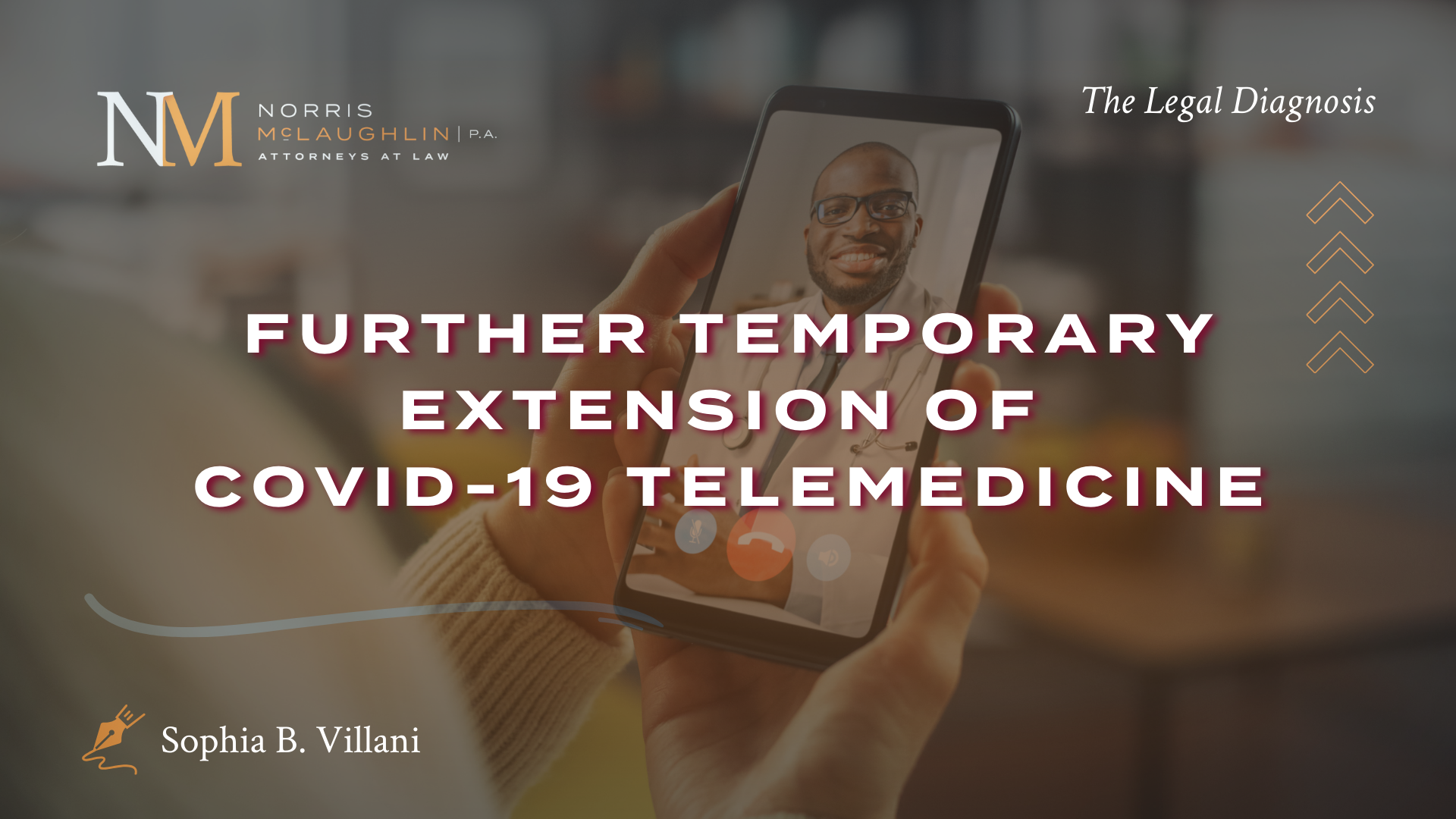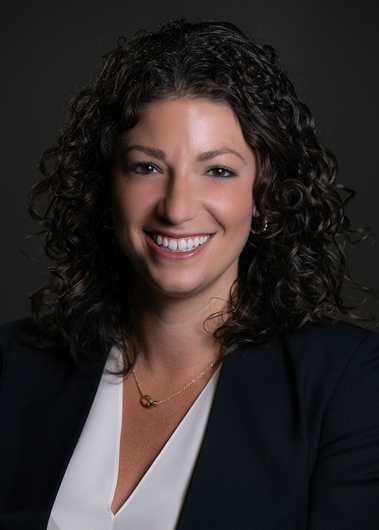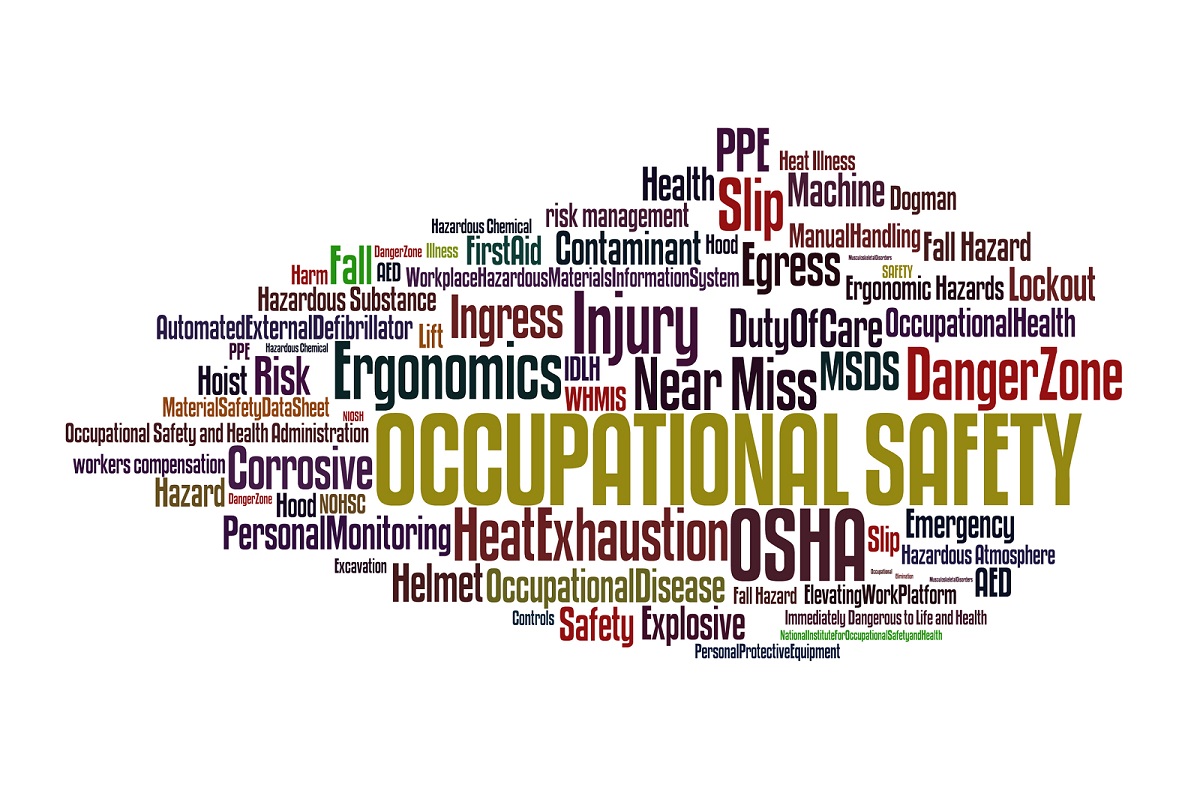Further Temporary Extension of COVID-19 Telemedicine Flexibilities for Prescriptions of Controlled Medications

The United States Drug Enforcement Administration has, for a second time,
extended temporary rules permitting prescription of controlled medications via telemedicine.
In response to the COVID-19 pandemic and the need for remote medical consultations and treatments, the United States Drug Enforcement Administration (“DEA”) granted temporary exceptions under the Ryan Haight Online Pharmacy Consumer Protection Act of 2008 (“the Ryan Haight Act”) allowing healthcare providers to prescribe controlled medications via telemedicine without the need for in-person medical examination. As discussed in our May 2023 blog post “Temporary Extension of COVID-19 Telemedicine Flexibilities for Prescriptions of Controlled Medications,” the DEA, in concert with the Department of Health and Human Services (“HHS”), announced two new Proposed Rules in advance of the conclusion of the Public Health Emergency (PHE) on May 11, 2023.
Due to the record number of public comments received, and to avoid lapses in patient care, the DEA and HHS issued a temporary rule entitled “Temporary Extension of COVID-19 Telemedicine Flexibilities for Prescription of Controlled Medications” (“First Temporary Rule”), which extended the full set of PHE telemedicine flexibilities and allowed prescription of controlled substances for new patients without an initial in-person examination through Nov. 11, 2023. The First Temporary Rule also created a one-year grace period extending the full set of telemedicine flexibilities through Nov. 11, 2024 for any practitioner-patient telemedicine relationship established on or before Nov. 11, 2023. The flexibilities under the First Temporary Rule are set to expire on Nov. 11, 2023.
On Oct. 6, 2023, the DEA and HHS announced a further extension entitled “Second Temporary Extension of COVID-19 Telemedicine Flexibilities for Prescription of Controlled Medications” (“Second Temporary Rule”), which takes effect on Nov. 11, 2023. The Second Temporary Rule extends the PHE flexibilities for prescribing controlled substances via telemedicine through Dec. 31, 2024 and eliminates the grace period established in the First Temporary Rule. By eliminating the grace period, the Second Temporary Rule removes the distinction between new and established patients and extends telemedicine prescribing flexibilities to all practitioner-patient relationships regardless of when the relationship was established until expiration of the rule on December 31, 2024. The Second Temporary Rule is issued pursuant to 21 U.S.C. § 802(54)(G) and can be viewed HERE.
Under the Ryan Haight Act, a prescribing practitioner – subject to certain exceptions – may prescribe controlled medications to a patient only after conducting an in-person examination of the patient. In March 2020, the DEA granted temporary exceptions under the Ryan Haight Act in response to the COVID-19 PHE that allowed healthcare providers to prescribe schedule II-V controlled substances and FDA approved schedule III-V narcotic-controlled medications for maintenance and withdrawal management treatment of opioid use disorder via telemedicine without the need for an in-person examination. The Second Temporary Rule extends the full set of PHE flexibilities through Dec. 31, 2024, for all patients regardless of when the practitioner-patient relationship is established.
The DEA continues to evaluate the comments received on the Proposed Rules, and the DEA hosted telemedicine listening sessions on Sept. 12 and 13, 2023, to receive additional input concerning prescribing controlled medications via telemedicine. In the listening session notice, the DEA stated it is “open to considering-for some controlled substances “a special registration without the in-person exam requirement.
The DEA announced it is working to promulgate a final set of telemedicine regulations by the fall of 2024 and has indicated its intention to open a second comment period for additional written comment prior to issuing final rules. The Proposed Rules announced by the DEA in March 2023, while maintaining some flexibility, were far more restrictive than the flexibilities granted during the PHE. It is unclear whether the DEA will implement the full set of PHE flexibilities on a permanent basis or if they will incorporate a special registration. Therefore, providers must continue to prepare for the end of the Second Temporary Rule on Dec. 31, 2024.
If you have any questions about this or any other legal matter, please email David N. Vozza, Esq., at dnvozza@norris-law.com or call him at (917) 369-8867 or (631) 935-5853, or email Sophia B. Villani, Esq., at sbvillani@norris-law.com or call her at (917) 369-8883.




